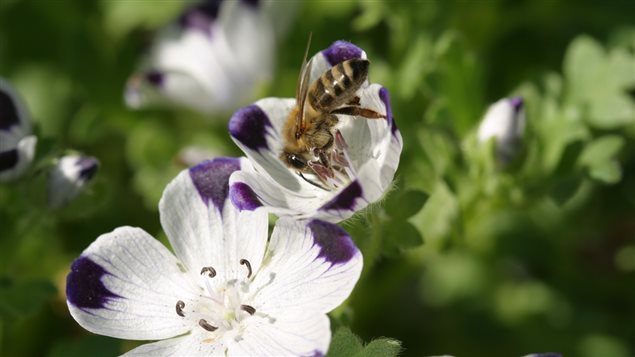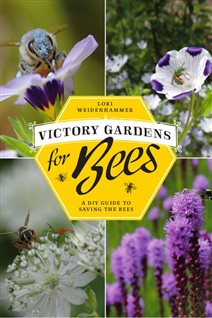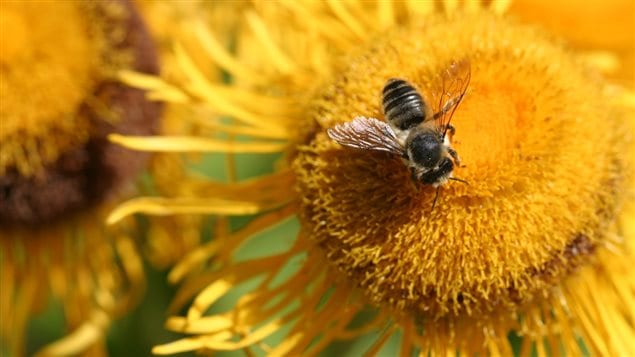Much of the food we eat needs to be pollinated by insects which are now in steep decline and the most vulnerable of them are bees. That’s why author Lori Weidenhammer has written a book urging gardeners to plant things that will attract local types of bees.
It is spring in Canada, and today is a holiday that people traditionally use to plant their home gardens. “Bees pollinate many of the most colourful and nutritious foods we eat as well as medicinal plants,” says Weidenhammer. “And they contribute to the survival of over 80 per cent of flowering plants. Bees are excellent pollinators.”

‘Keep out neonics’
Do not plant anything that has been treated with neonicotinoids, she warns. Neonics, as they are called, are a kind of pesticide that is suspected of affecting the bees’ ability to pollinate and may be a factor in their decline.
She advises people to buy plants they are sure have not been treated, or to grow their own from untreated seed. Weidenhammer also suggests gardeners choose plants that flower at different times through the growing season so that bees have access to food at all times. Her book, she says, is like the Canada Food Guide, only for bees, in that it suggests which plants are most likely to provide healthy meals for the insects.

Don’t ‘jive with the hive’
The book is called Victory Gardens for Bees and Weidenhammer got the idea for it from victory gardens that were planted during World War II to provide food and encouragement. Some Canadians plant their own gardens and others gather to create community gardens. While they’re at it, Weidenhammer thinks they can be encouraging bee populations.
As for those who are afraid of being stung, she says out of Canada’s 800 bee species, only the female bumblebees sting. She does teach children bee safety. She instructs children to give bees room to do their work, to move slowly in their gardens and to never “mess with the nest” or “jive with the hive.”








For reasons beyond our control, and for an undetermined period of time, our comment section is now closed. However, our social networks remain open to your contributions.